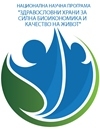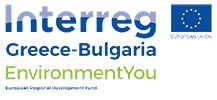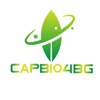Global And Regional Climate Changes
|
Course title: |
Global And Regional Climate Changes |
|
|
Course code: |
AFGCC |
|
|
ECTS: |
5 |
|
|
In-class hours |
Lectures: |
30 |
|
Laboratory work/Tutorials: |
30 |
|
|
Self-preparation hours |
Practical training: |
- |
|
Other: |
65 |
|
|
Total hours: |
125 |
|
|
Language: |
English |
|
|
Study cycle: |
BSc, MSc, PhD |
|
|
Semester: |
Winter & Summer |
|
|
Faculty: |
Faculty of Agronomy |
|
|
Name of the lecturer(s): |
Assoc. Prof. Kalinka Kouzmova, PhD |
|
|
Mode of delivery: |
Face-to-face, distance learning, combination of both |
|
|
Prerequisites: |
Basic knowledge of geography and computer science. |
|
|
Learning outcomes of the course unit: |
The curriculum is suitable for BSc, MSc and PhD students on English or the Russian language. Climate change and its impact on society and human health (direct and indirect) are indicated as an important challenge facing the European Union in terms of citizen’s protection from health threats. Global warming and regional climate changes set not only the Bulgarian economy in a very unfavorable situation. The expectations to the EU are that climate changes have an impact on the epidemiology of many diseases and disorders. These impacts on human health will be experienced differently by different countries and their regions, namely because of the geographical configuration of the European Union. The nature and scale of this impact will ultimately depend on the adaptive capacity of regional institutions and health systems and access to these services, which generally have different population groups. Some of the planned EU action could be effective in the current climate conditions, but may require that they be strengthened or revised in the event of much more severe or accelerated climate change. Regional structures and health systems are vulnerable to extreme weather events. Really climate changes may affect them by increasing demands on the health services beyond the capability of these systems. It could also affect their ability to cope with demand, thereby undermining infrastructure, technology and availability of workforce. This is the link to only react to emergencies. By studying the theoretical and practical thematic units out in the curriculum of the course "Global and regional climate changes," students will become systematic and thorough knowledge in this area. The goal is to continue efforts to address the needs posed by globalization, climate change and other factors, in cooperation with European institutions and agencies, national authorities, the research community and other stakeholders. The course "Global and Regional Climate Change" aims to teach future professionals about the major challenges facing humanity in the 21st century - climate change at the global, regional, and local level. Students learn to identify, analyze and evaluate climate change and its territories of different sizes. Take cognizance of the nature of dangerous effects and humans to protect at different levels. By studying the theoretical and practical thematic units out in the curriculum of the course "Global and regional climate changes," students will become systematic and thorough knowledge in this area. The goal is to continue efforts to address the needs posed by globalization, climate change and other factors, in cooperation with European institutions and agencies, national authorities, the research community and other stakeholders. Students will gain knowledge of the main climatic factors and their impact on growth, development and productivity of ecosystems, on life and human activities. They learn to identify, analyze and evaluate the climatic elements and phenomena in air, the earth’s surface and ecosystems as a whole. Take cognizance of the nature of the dangerous phenomena of weather and climate and protection from its damaging effects. Students obtain skills in the use of weather and climate information, forecasting and methods for assessment of weather and climate conditions, learn to prepare the climatic characteristics in the different geographical regions. |
|
|
Course contents: |
I. LECTURES – 30 hours (15 x 2 hours) 1. Introduction to the theory of climate - Creating a theory of change, development and present state of the theory of climate. Actuality and need for studying the regional climate. International documents and projects related to the study of change. 2. Climate system and climate-forming factors - External factors (macro environment) and internal factors (micro-environment), formation of microclimate (global climate) mezoclimate (regional climate) and microclimate (local climate). Climate-forming factors, factors formatting the climate in the Balkans and Bulgaria. 3. Variability and climate change in global and regional aspect - Nature the modern climate changes, history, large fluctuations and climate changes. Theories for the emergence of climate change, natural and anthropogenic factors. Climate changes under the influence of anthropogenic activities. Climate changes during the 20th and the beginning of 21st century in global, regional and local aspects. 4. Climatic expressions of the global warming and its impact on regional development – genesis stages, specifications and estimates, Effects of the natural ecocatastrophes. Information systems and networks for environmental monitoring systems, planning and environmental management, monitoring of global climate changes. 5. Regional models of modern climate changes - regional models, interpretation of regional climate changes, selection of a regional model. Climate scenarios for the 21st century in the world, Europe, Balkans and Bulgaria 6. Risk, hazard, vulnerability and risk management from climate changes - Nature, state of the problems and risk management, Strategic Plan for response in crisis situations, Planning and crisis management, Crises related to human health. European system for early warning for risks of natural disasters. 7. Policies on climate change - global challenges and local counteractions - Effects of climate changes on society, economy, environment and regional development, Adaptation and mitigation of climate changes, National Plan of Bulgaria for the actions on climate changes, European Programme on Climate Changes, Status of the problem, possible counteractions, management strategies at global, regional, national and local level. European trading scheme for carbon emissions - Directive 2003/87/EC, EU and policy on climate changes - 2020 strategy. 8. Adaptation of the regional unit, management and development to climate change to the European framework for action (the EU White Paper (SEC 2009) - Nature, organization and management principles and approaches, International Cooperation and European policy. Mechanisms for increasing the capacity of regional institutions to respond to climate change in relation to human health. Assessment of associated risks, strategic plans and funding opportunities from European funds 9. Integration of global climate change in the process of regional development in Bulgaria and integration of environmental policy objectives for local economic development.
II. LABORATORY PRACTICAL WORK – 30 hours 1. Establishment of fluctuations and climate change in different geographical regions of Bulgaria and the choice of regional model – 5 hours. Contents: collecting and compiling information on climate, choice of parameters, options analysis model and recommendations for making rational management decisions. 2. Prepare a strategic action plan for extreme weather situations in different regions of the country – 5 hours. Contents: elaborated algorithm of the strategic plan for a defined geographical area: selection of indicators, which will prepare a strategic action plan and its impact on infrastructure and regional development. Based on completed processing and data analysis formulate specific conclusions and recommendations. Finally, prepare a model for a poll to survey and increasing information. 3. Role and place of theory of climate in the strategic action plan for crisis management and regional development – 5 hours. Content: Introduction to modern challenges and dangers facing the world in the 21st century and implications of climate changes on the organizational structure and management of regional development, restructuring of the traditional management functions, human health and ensuring production of safe food. |
|
|
Recommended or required reading: |
1. Climate change Science: An Analysis of some key questions, 2001, ISBN-10: 0-309-07574-2 ISBN-13: 978-0-309 07571-9. 2. Robert H. Webb; Michael Collier, 2002. Floods, Droughts, and Climate Change, 160 pp. 3. James Lawrence Powell, 2011. The Climate Crisis: An Introductory Guide to Climate Change Rough Winds: Extreme Weather and Climate Change (Kindle Single). 4. Robert Henson, 2011. The Rough Guide to Climate Change (Rough Guide Reference Series). 5. Gavin Schmidt, Joshua Wolfe and Jeffrey D. Sachs 2009. Climate Change: Picturing the Science. 6. M. Hulme 2009. Why We Disagree About Climate Change: Understanding Controversy, Inaction and Opportunity. 7. Edmond A. Mathez, 2009. Climate Change: The Science of Global Warming and Our Energy Future. 8. Professor Andrew Dessler and Edward A. Parson (Mar 31, 2010) The Science and Politics of Global Climate Change: A Guide to the Debate 9. Robert V. Rohli, Anthony J. Vega 2007 Climatology. Publisher: Sudbury, Mass. Jones and Bartlett Publishers, 2007, 1st ed. 10. Robert H. Webb; Michael Collier, 2002. Floods, Droughts, and Climate Change, 160 pp |
|
|
Planned learning activities and teaching methods: |
Teaching methods will be presented by: - Monological explanation (lectures with presentations); - Dialogue methods (conversations and discussions) The course includes the following mandatory components: lectures, laboratory and practical work, as well as student self-preparation. The lectures and laboratory practical works are supported by extensive literature and material basis. The lectures are delivered by means of PowerPoint presentations. They take the form of a discussion between the students and the lecturer, with reference to pre-selected topics. Lectures include key moments in the thematic units, backed by extensive visual material. The main themes are developed and specified during the practical work. The practical work is developed in order to maximize individual students' work. Thematic units, the overall plan during the semester, and control the execution of tasks shall be explaining to students already at the first session. For maximum utilization of the material provided as practical training, students work independently under the guidance of a teacher with extensive experience in the specialty. Based on the results students make their own justification and evaluation of potential effects of climate change in the selected region and with the help of the teacher formulate the most important recommendations for practice. The current control is carried out on material from practical exercises and lectures. When press reports about extreme weather situations or acts of God, is conducted a short discussion, which gives more practical the studied material. Permanent dialogue with the students during lectures makes it possible to assess the extent of implementation of teaching material and responsible questions of excelling students. |
|
|
Assessment methods and criteria: |
The course ends with a written examination. The latter includes a pre-defined set of questions, which is drawn from the course material. The final evaluation will take into account the systematic presence and work throughout the semester. When it is necessary for finalizing oral examination is conducted on all lectures. |
|
 - Events on the occasion of the 80th anniversary of AU
- Events on the occasion of the 80th anniversary of AU











